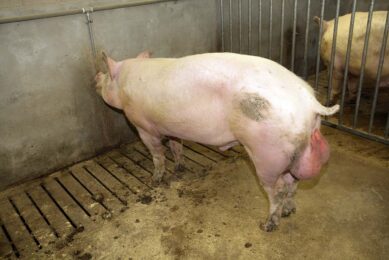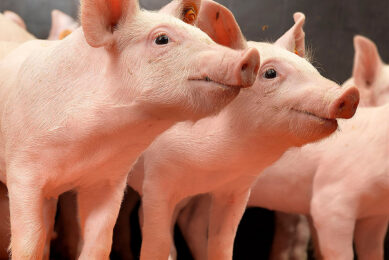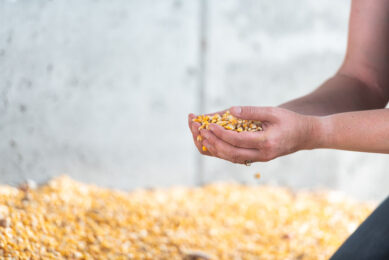ONE: What constitutes the ‘best’ pig farm?

As Covid-19 has changed everything this year, the annual ONE conference by animal nutrition company Alltech was conducted virtually this year. For pig production, the presentation by Valerie Duttlinger of Summit SmartFarms jumped out. She talked about how to achieve a top performance as a pig farm.
All pig farms strive to be the best in the business, but in order to achieve this some farms have a longer road to travel than others. Having a well-run pig farm is not just about having the best equipment money can buy. Perhaps more importantly, it is about hiring the best people to work there. These were the thoughts expressed by Valerie Duttlinger, the chief analytics officer at Summit SmartFarms, during her presentation at the Alltech ONE conference, which was held at 18-22 May, 2020.

What constitutes the ‘best’ pig farm?
Duttlinger is responsible for assisting the development of decision-ready products, delivered simply to assist in the creation of irresistible workplaces. In terms of what constitutes the ‘best’ pig farm, she cited a number of figures that act as parameters.
These include:
- 30 pigs weaned per mated female per year;
- 95% farrowing rate
- <5% sow death loss>
- <3% wean to finish death loss>
- 2.4 adjusted feed conversion
- <25% annual turnover in sow farms>
- >50% engaged team members
Putting people first on a pig farm is one of the key methods of running a good pork rearing business. “When we think about putting people first, it is important to realise that all people are different,” said Duttlinger. “We also need to understand that all people want the same things and your team members are no different.”
Addressing anonymity or irrelevance at pig farms
Job misery can be caused by irrelevance, immeasurement and anonymity and pig farm owners should try to address these to keep employees working as a team and to keep the workers’ morale high. The appreciation of every team member working on a pig farm is vital if that business is to succeed, and that sentiment extends to knowing how each individual is and their families.
Duttlinger said: “Anonymity is when someone sees himself or herself as invisible at work, feeling like they are replaceable or disposable and not known for who they are personally. To prevent this, we need to appreciate team members for their unique contributions and prevent hire on the spot interviews.
Tell the story over and over again
She continued to say: “Irrelevance is when a team member feels no connection with what they do and the mission and success of the company. To prevent the feeling of irrelevance, team members must understand the history of the company, what motivated the ownership of the company to start it and be able to tell that story over again.
“Immeasurement is when you are not able to assess progress or success on your job. Every team member should be given a scorecard to prevent this,” she said.
However, it all boils down to good management if a pig farm and its workforce are to be successful. That means a good boss should be a good coach. “Be a coach, not a boss,” Duttlinger said.
Great coaches lead instead of demand
“Great coaches lead instead of demand, they say we instead of I. They give credit instead of taking credit. They accept the blame instead of placing the blame. They ask for input rather than only doing it their way. And they celebrate the wins while addressing the errors. I believe no matter what role you have within your company, you are in a leadership position. And you can have an impact on the culture, so what are you going to do today to create an irresistible place to work?”
 Tackling tail biting
Tackling tail biting
The ONE conference had various other presentations related to swine. One of them addressed the issue of tail biting. After all, despite many improvements, the swine industry continues to make in the areas of health, nutrition, productivity, efficiency and welfare, the challenges presented by tail-biting and other vice behaviours continue to persist.
The AllBite block, a molasses based product incorporating Alltech technology, was developed to tackle such challenges. Dr Andrew Bents, swine technical veterinarian with Hubbard Feeds, outlined how it works. “The block is edible, chewable, destructible and the animals are able to manipulate it within the pens,” he said. “It is these four categories that allow the pigs to exhibit normal foraging behaviours. One block should be given to every 25 head. This block also works well in gilt developer units and in pen gestation.”
Easy access for the pigs to chew on
Dr Bents went on to highlight the regular aggression points in a pig pen of 30 animals. Hanging two of the blocks in the middle of this pen allows the pigs easy access to chew on the blocks instead of their pen mates.
Other speakers at the Alltech ONE conference focusing on pigs included Noelle Noyes, Dr Alex Yiannikouris and Jarrod Sutton.
 Beheer
Beheer








 WP Admin
WP Admin  Bewerk bericht
Bewerk bericht